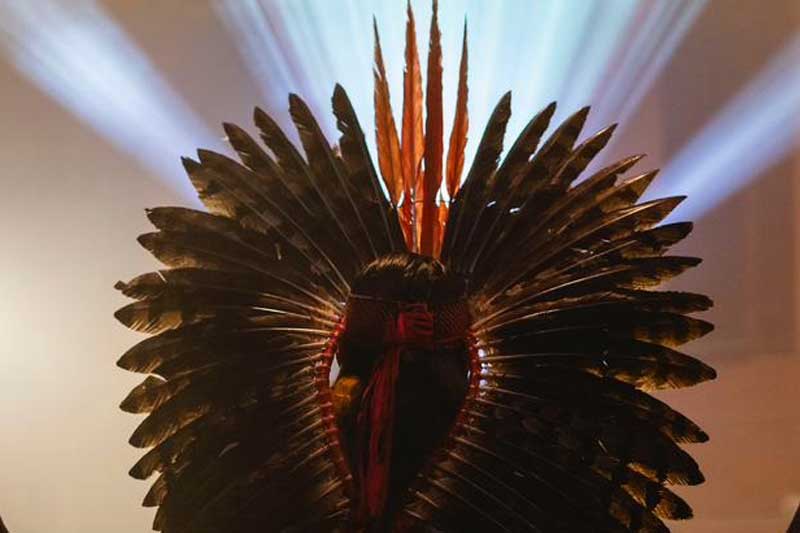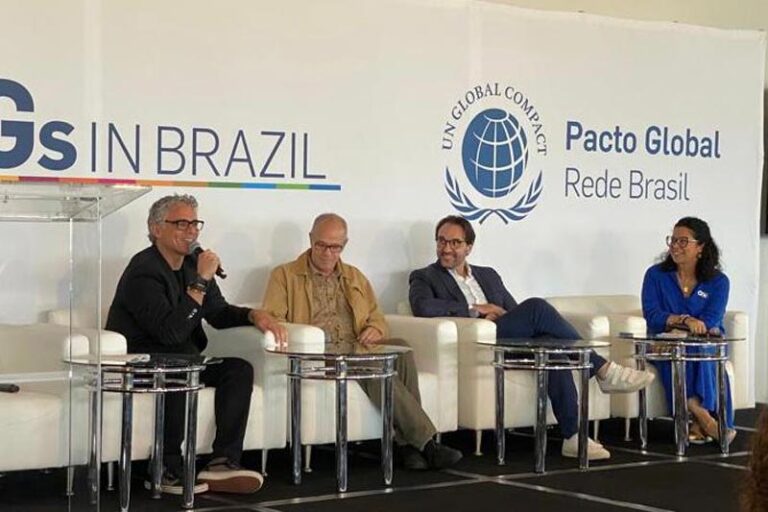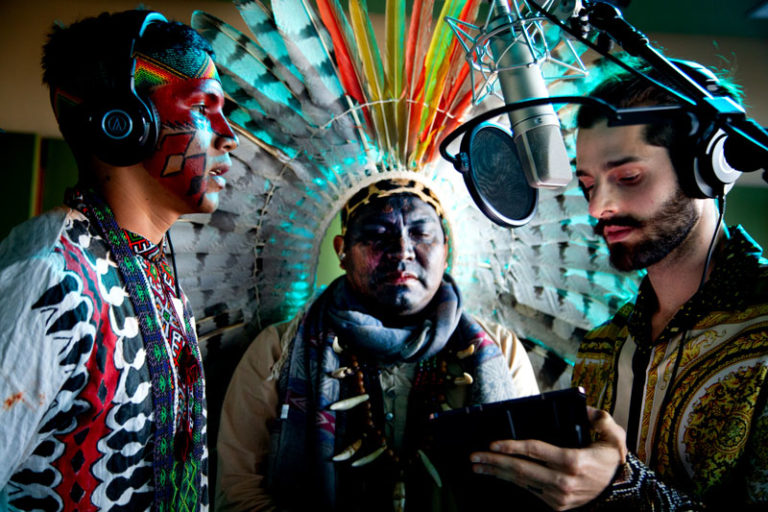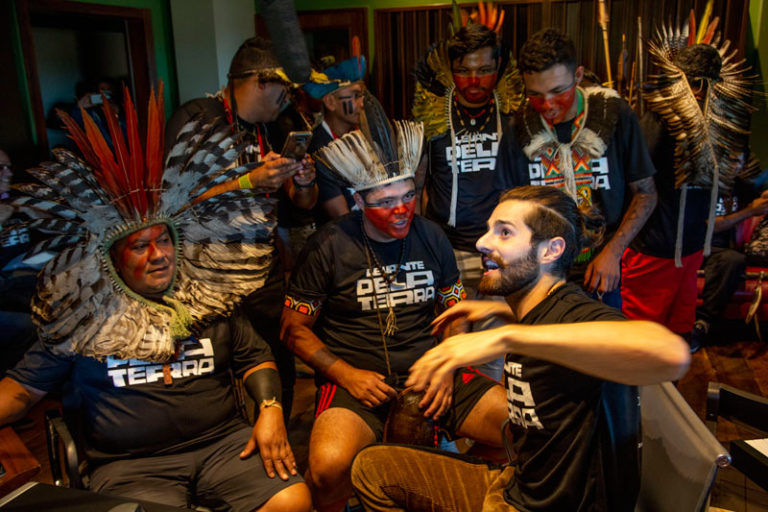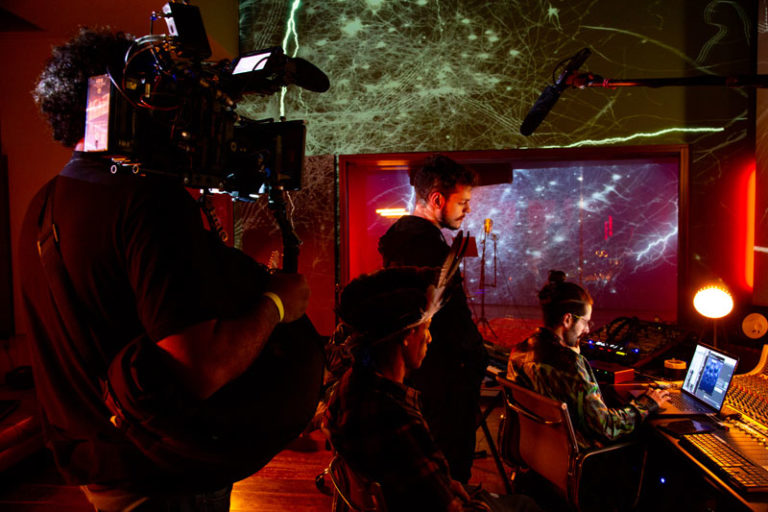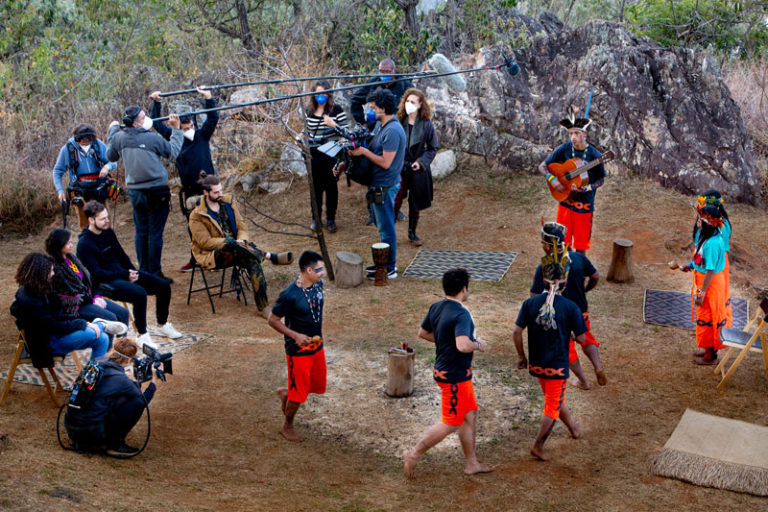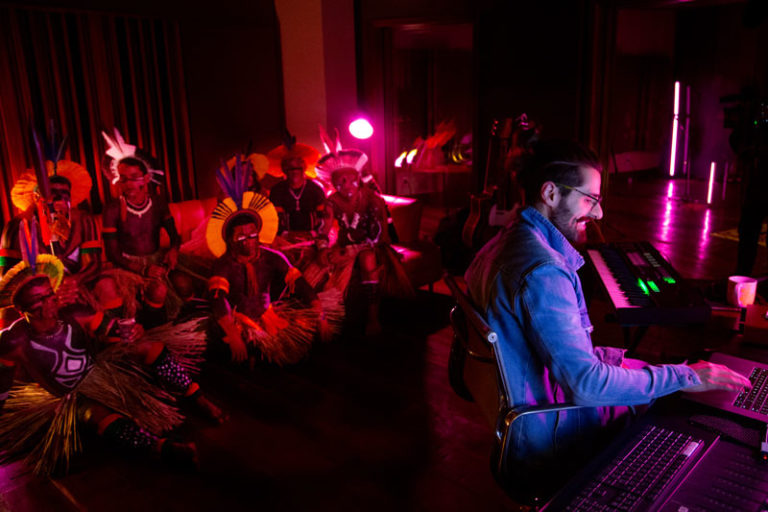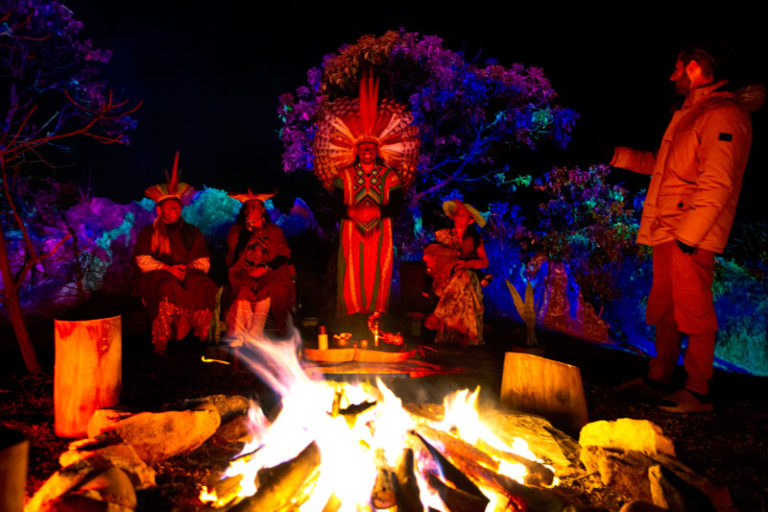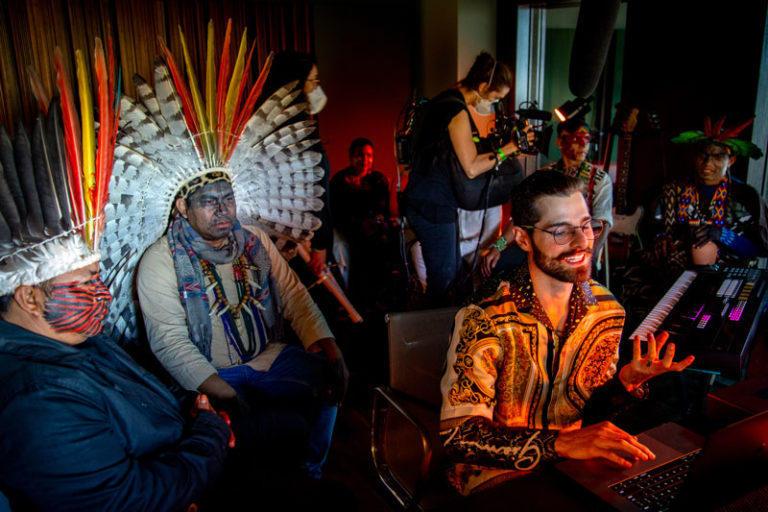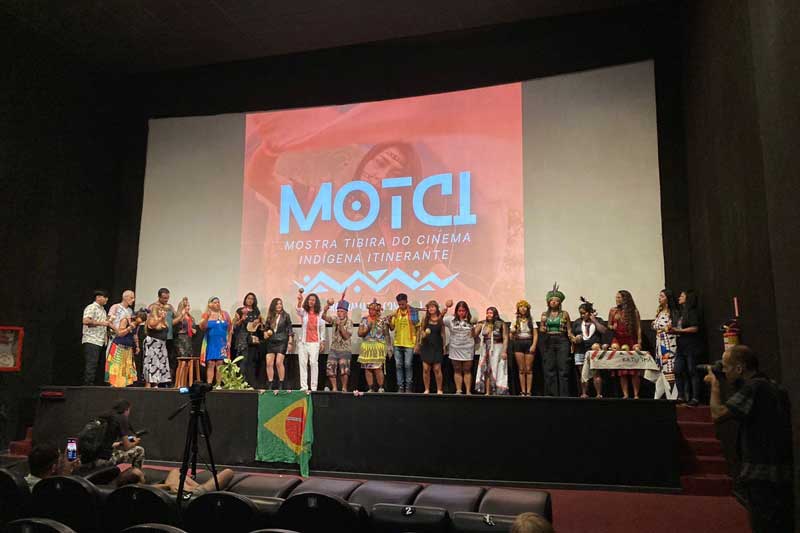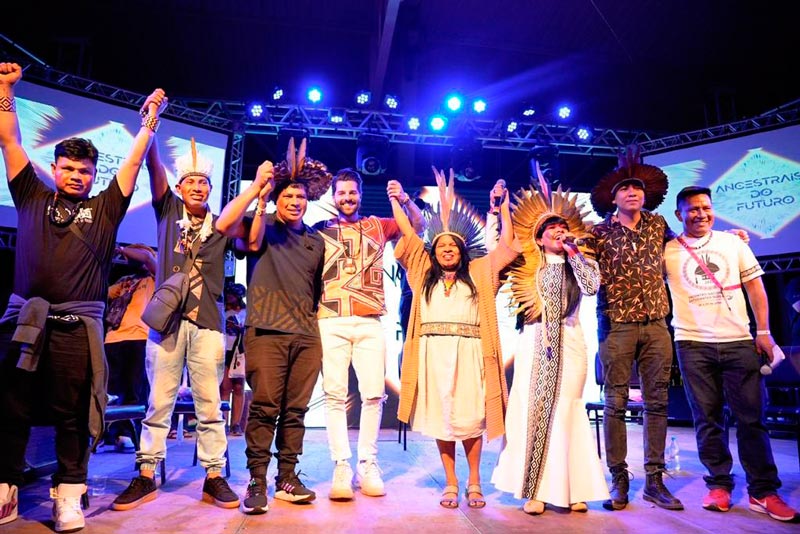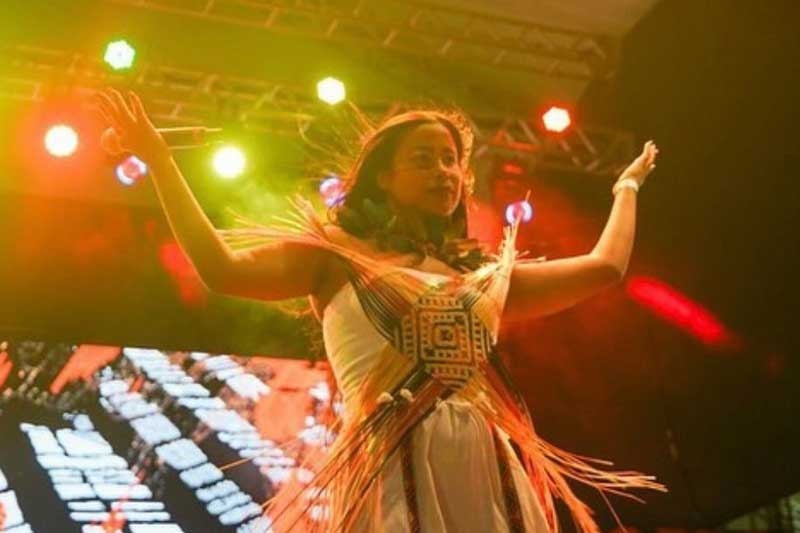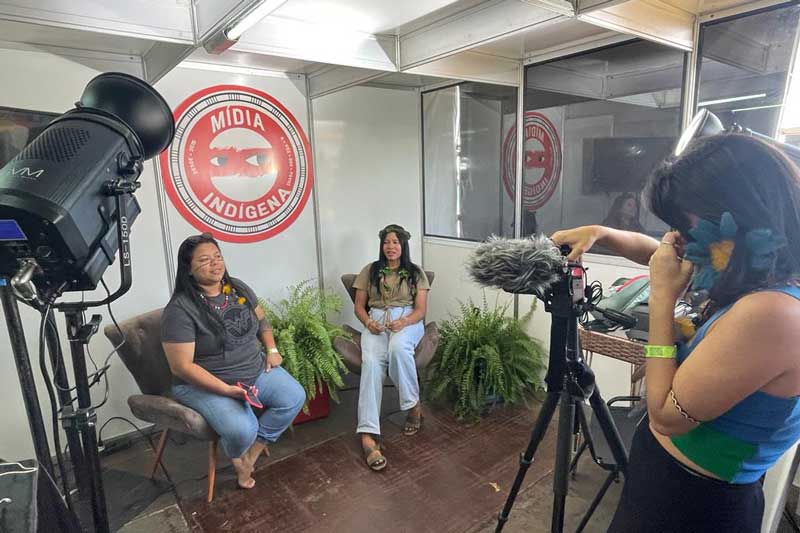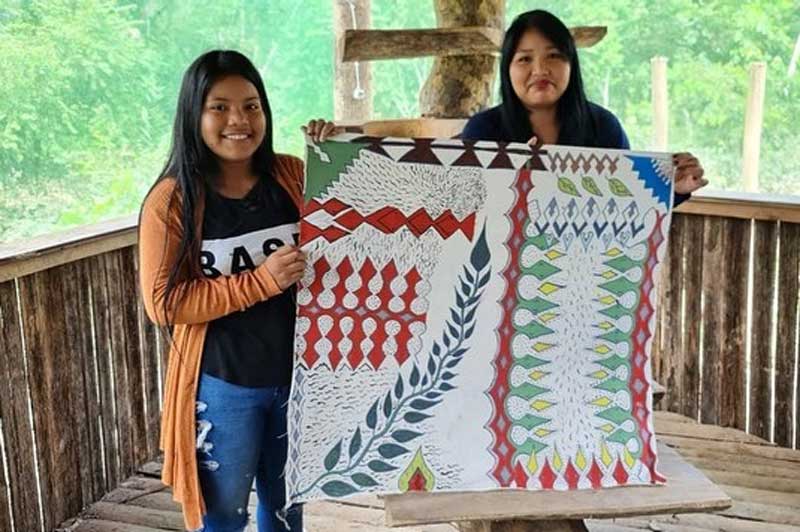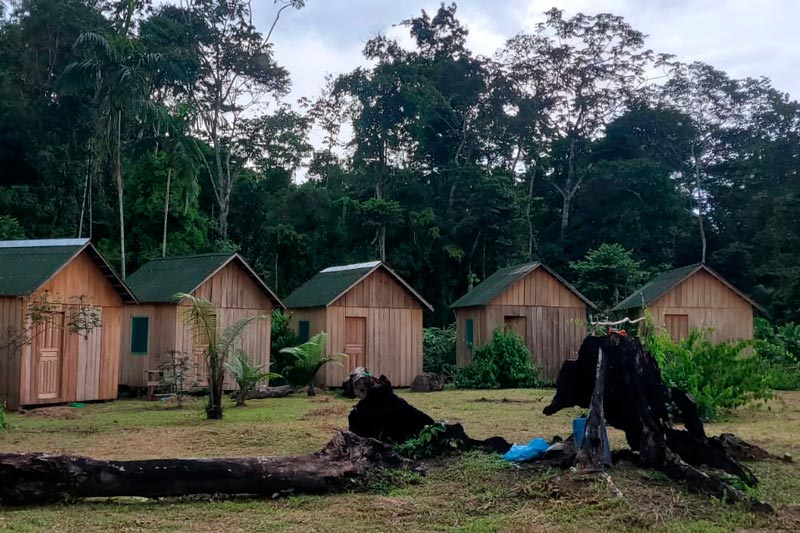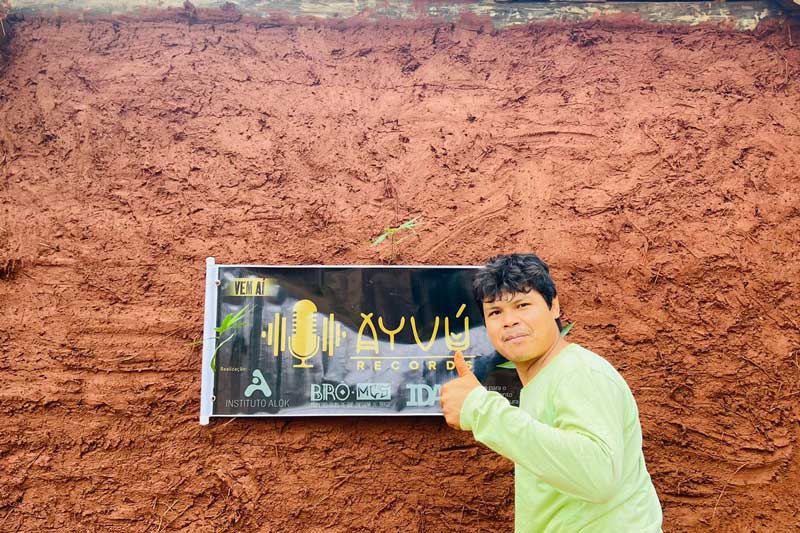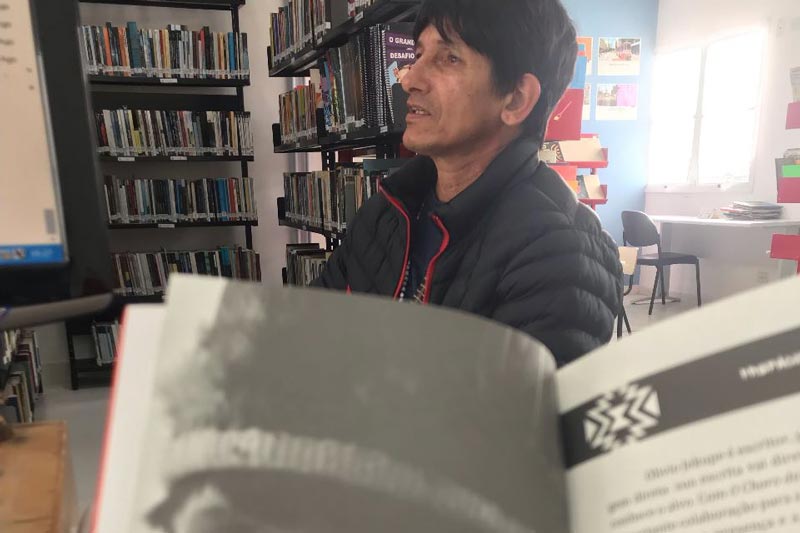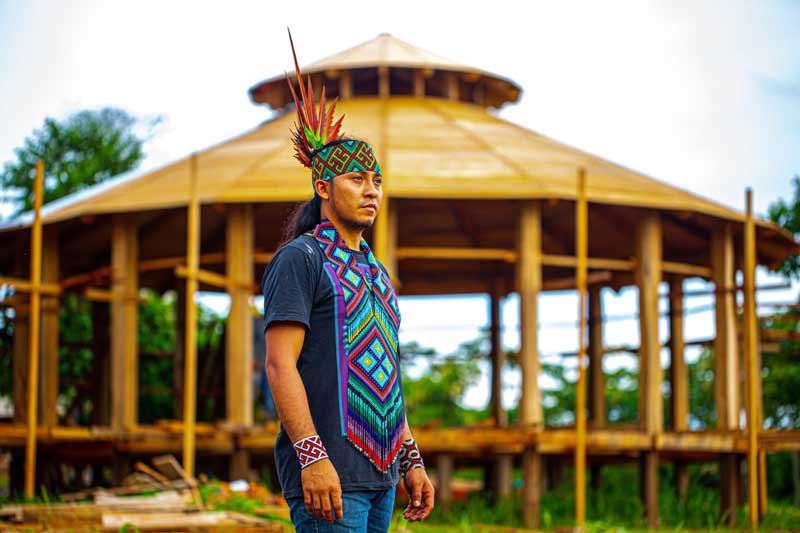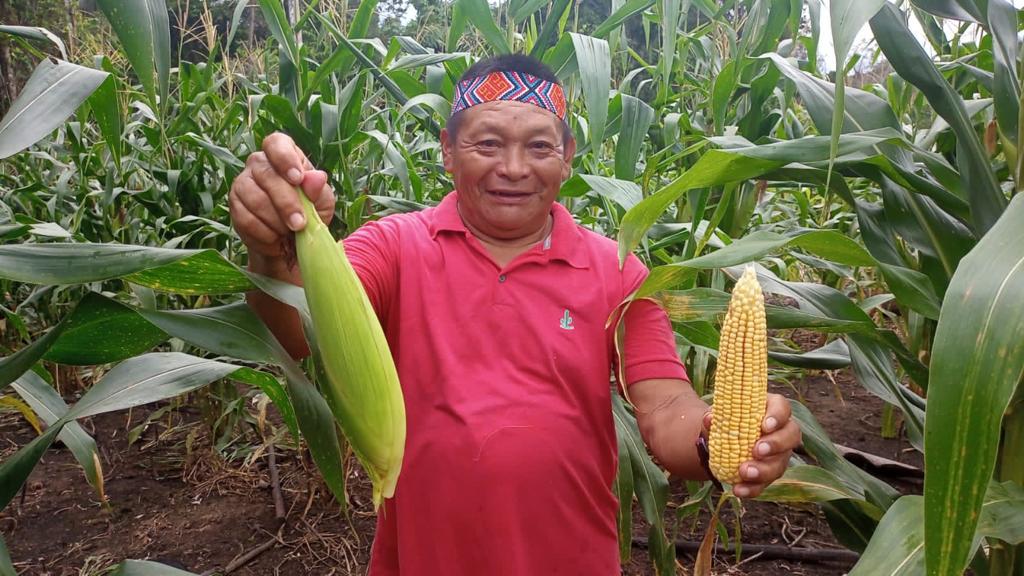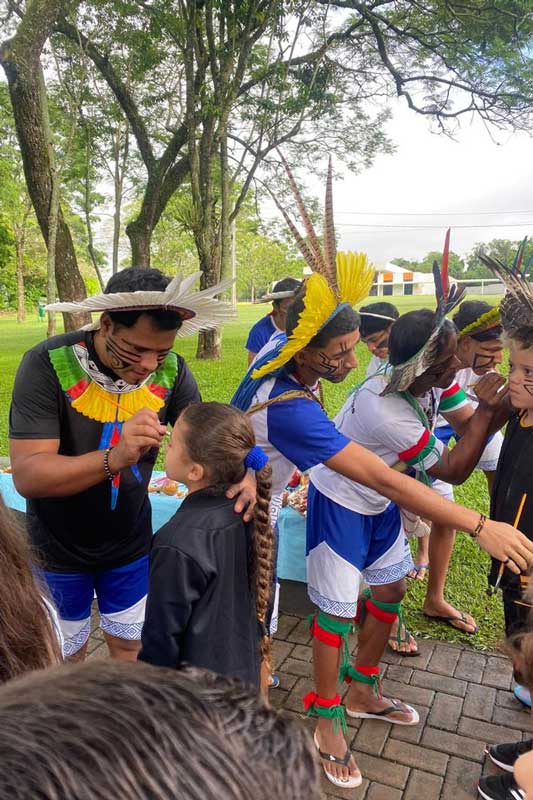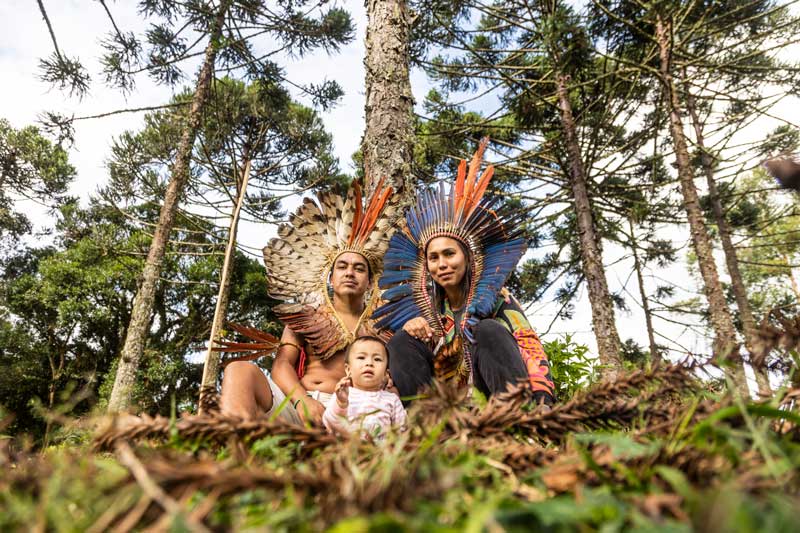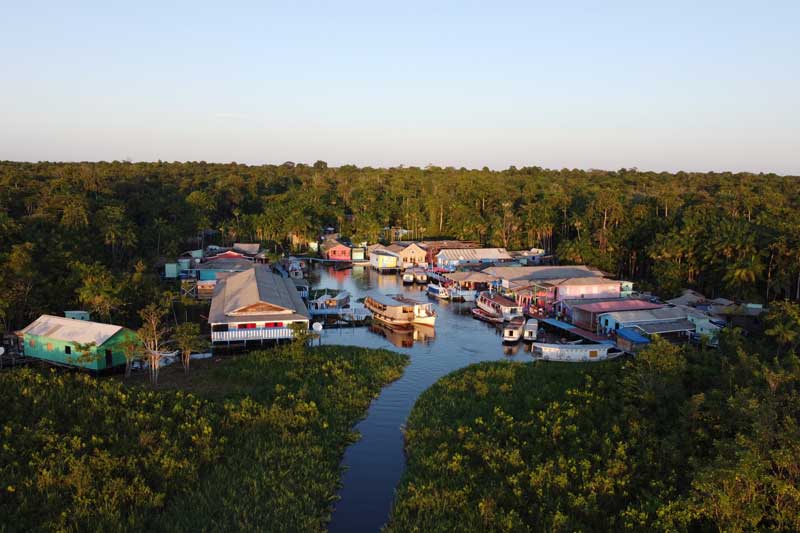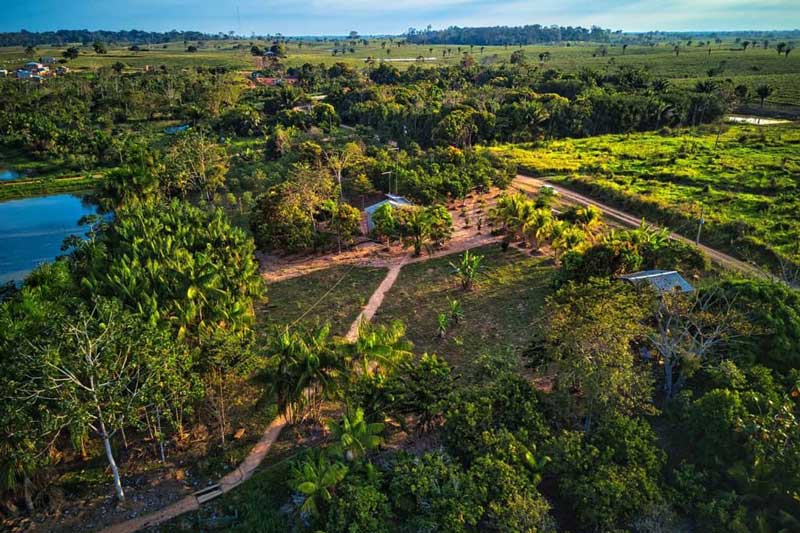The Project Brazil of Cocar* is a broad program by the Alok Institute, comprised of various actions aimed at supporting:
*Cocar is a traditional headdress of the Brazilian indigenous peoples
- the production of music, cinema, and digital communication to expand non-indigenous people’s knowledge of indigenous cultures and their agendas related to the environment and defense of rights;
- the well-being of villages inhabited by indigenous peoples of Brazil (housing, water, agriculture, education for children and youth);
- entrepreneurship among indigenous peoples in arts, technology, gastronomy, fashion, etc., including professional training in technology;
- mobilization actions for promoting and defending rights, often involving the personal and voluntary engagement of Alok as a strategic actor to contribute to raising awareness about issues relevant to the Brazilian indigenous population.
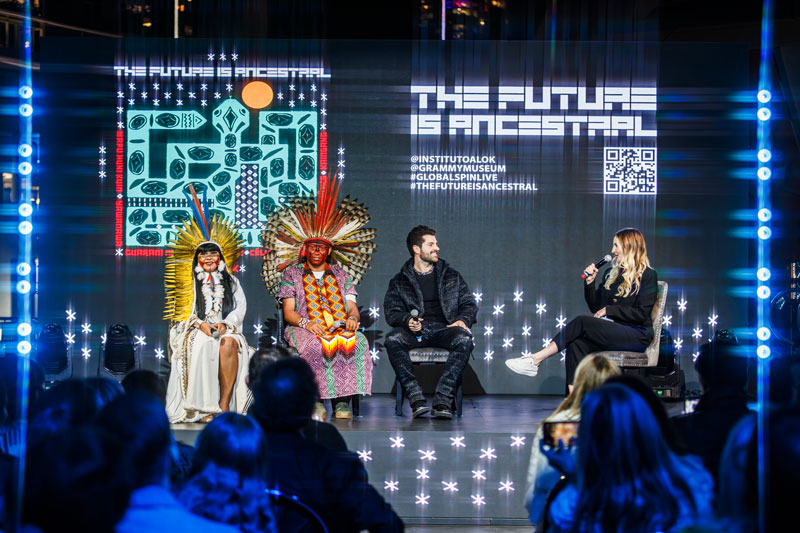
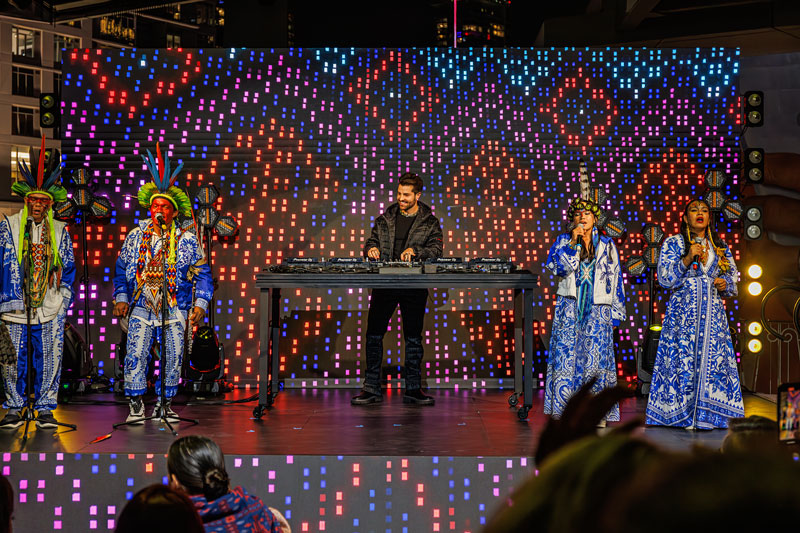
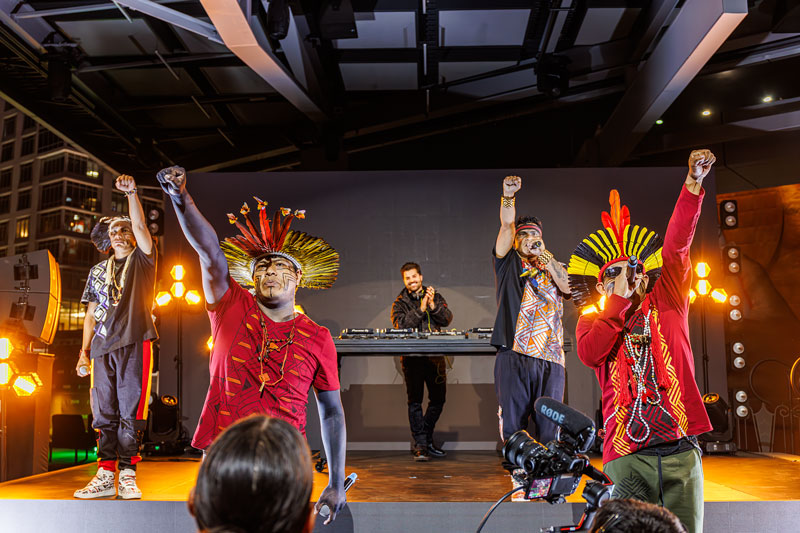
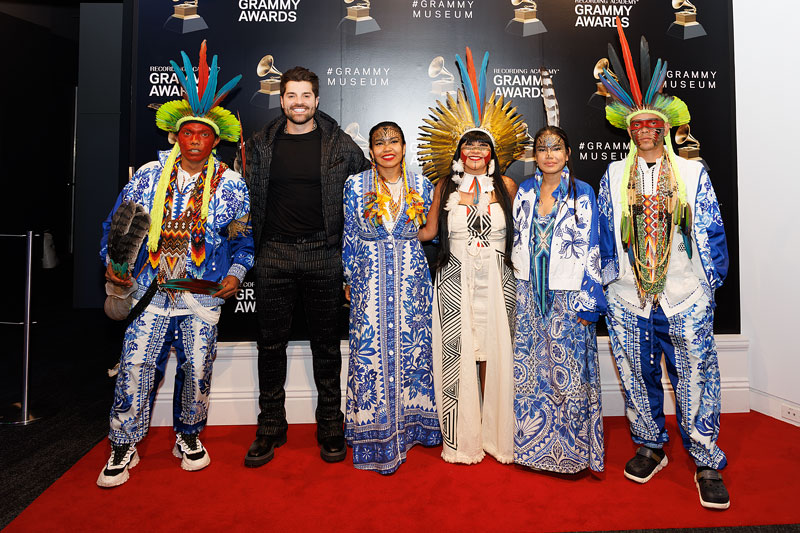
Fotos: Felipe Miranda
“Bringing the ancestral wisdom of the forest to the world is not only part of my artistic goals but also of my principles as a citizen. Since I came into contact with indigenous cultures, I understood the importance of preserving and disseminating their knowledge and deconstructing concepts, beliefs, and narratives that contaminate the perception that adults and young people in my country, and around the world, have about indigenous peoples. The future can be both technological and sustainable, but for that, we need to listen to the voice of the forest and co-create solutions together with those voices.”
Alok
Fotos: Mila Petrillo, Arquivos pessoais e dos projetos
Strategic Actions
1 – Album The Future is Ancestral
The album The Future is Ancestral is the result of more than 500 hours of recordings involving around 50 Brazilian Indigenous artists, representing eight ethnic groups, and DJ and music producer Alok (president of the Alok Institute).
Its mission is to amplify Indigenous voices, create a bridge of enchantment between Indigenous cultures and peoples and the non-Indigenous in Brazil and worldwide. We aim to strengthen the recognition of ancestral wisdom as an essential element for building a future that we want to be environmentally sustainable and socially just.
After preview performances at the UN – NY (Climate Week 2022 and 2023), Global Citizen (2022), and Grammy Museum (Los Angeles, USA, 2024), the album was released on April 19, 2024, Indigenous Peoples’ Day, in Brasília, Brazil. In September, it returned to perform at Global Citizen (Central Park, NY), calling attention to COP 30, to be held in Brazil in 2025.
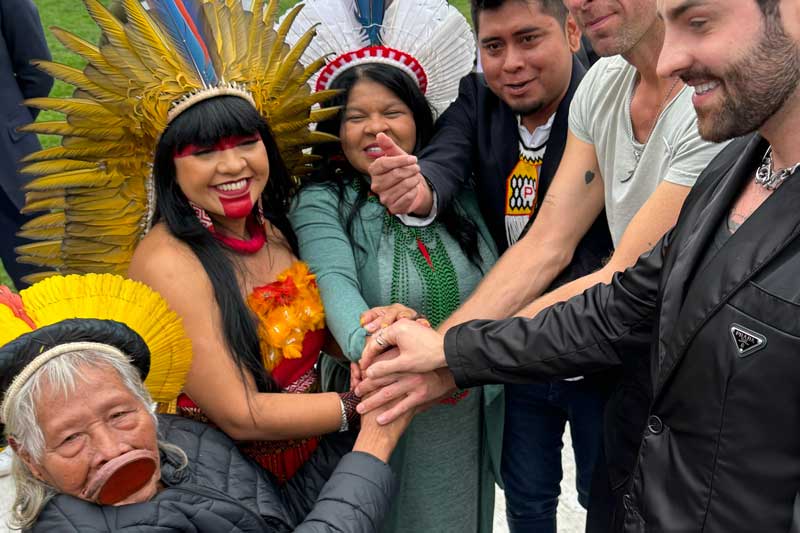
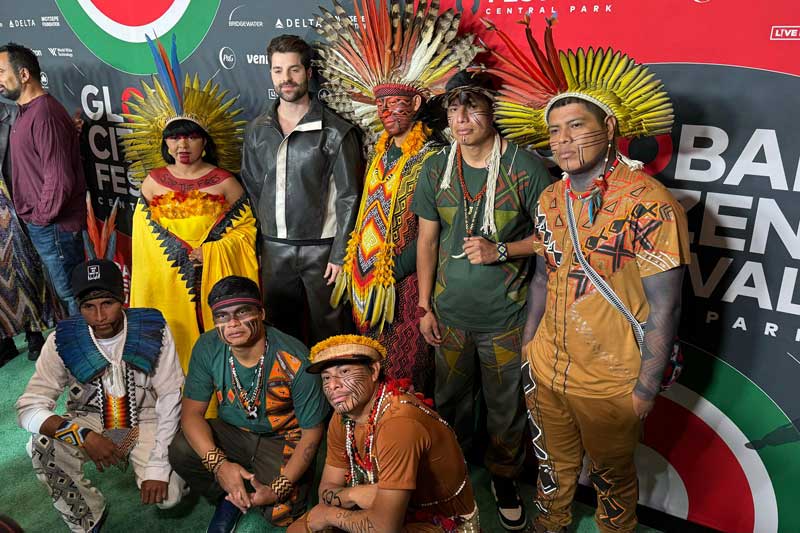
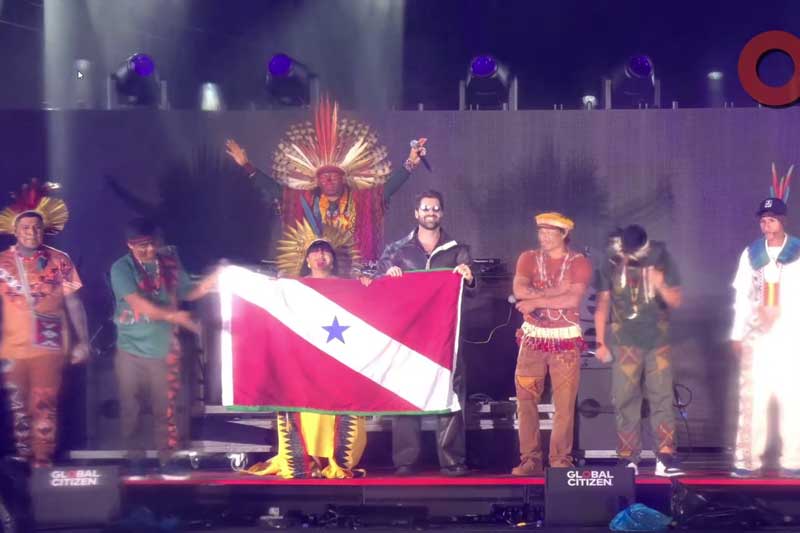
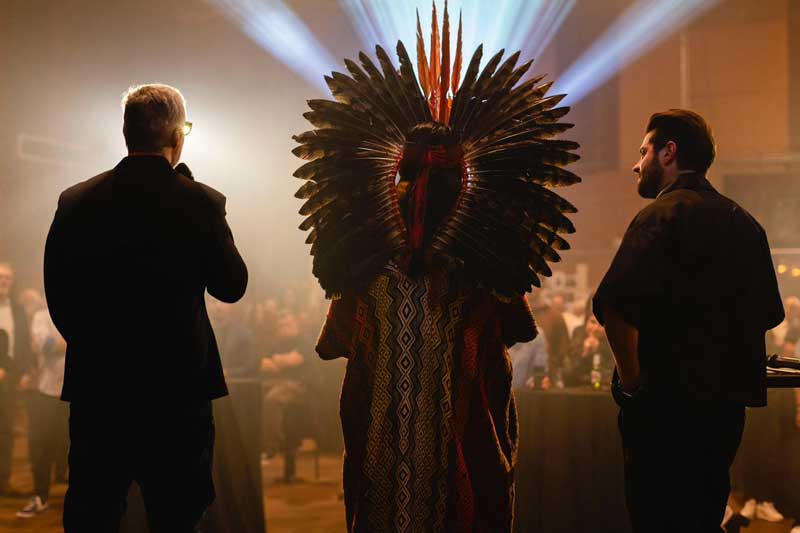
The album The Future is Ancestral is a joint creation of the following artists and/or groups (who own the rights) with Alok:
- Mapu Huni Kuî / Huni Kuin People / AC
- Tashka Yawanawá, Matisini Yawanawá, Rasu Yawanawá and Yawanawá People / AC
- Kariri Xocó Enchanted Songs (in memory of Wyanã – Master of Songs) Kariri Xocó People / AL
- Owerá / Guarani Mbya People / SP
- Brô MC’s / Guarani Kaiowá People / MS
- Kretã Kaingang and group / Kaingang People / PR
- Guarani Nhandewa – artists’ collective / Guarani Nhandewa People / PR
- Célia Xakriabá / Xakriabá People / MG
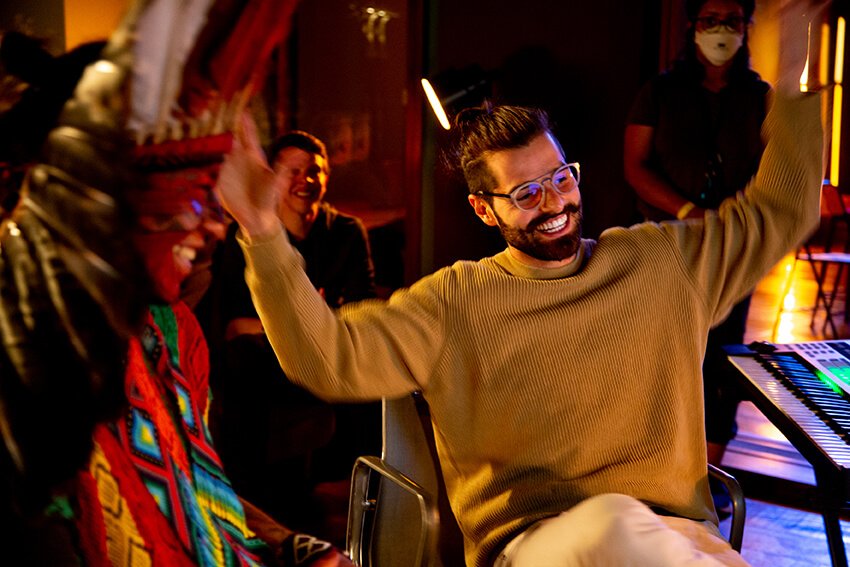
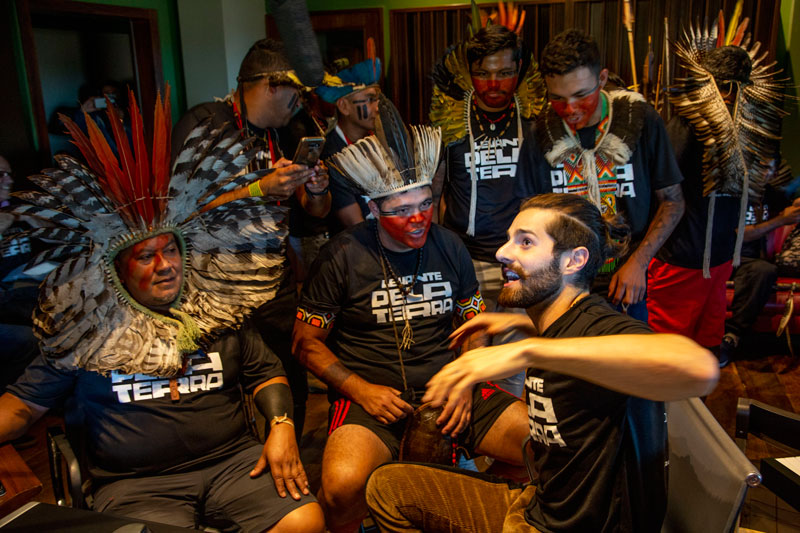
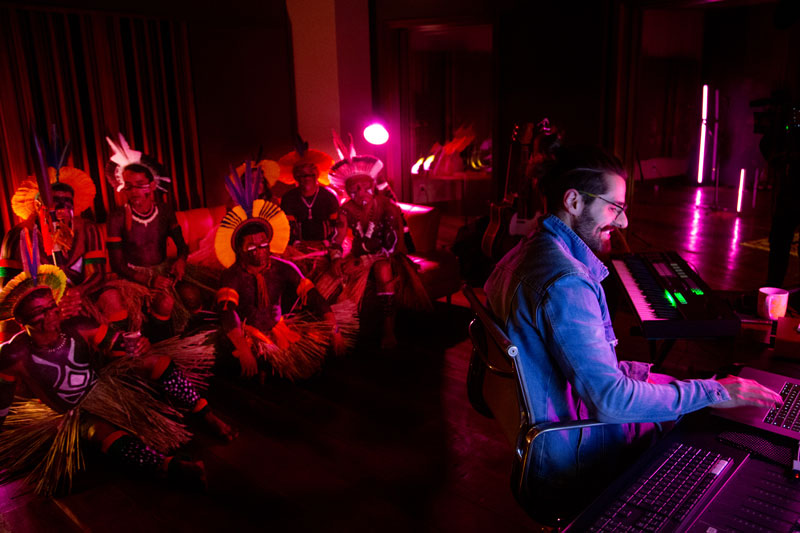
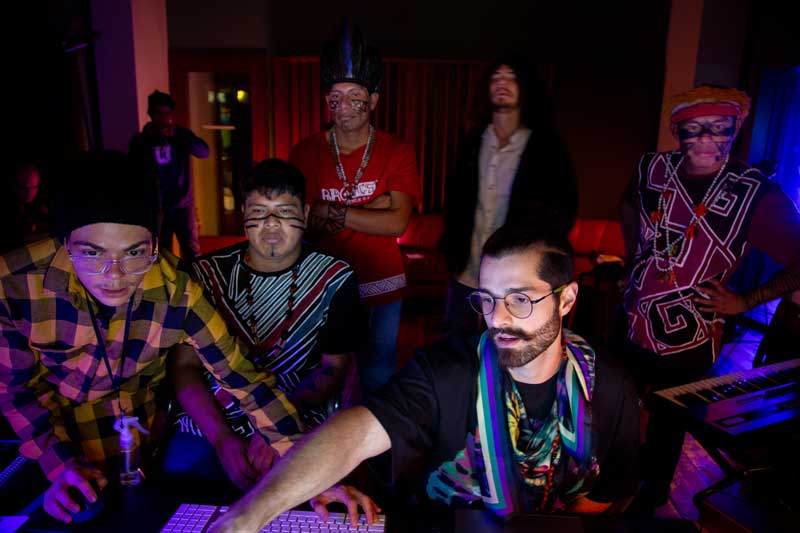
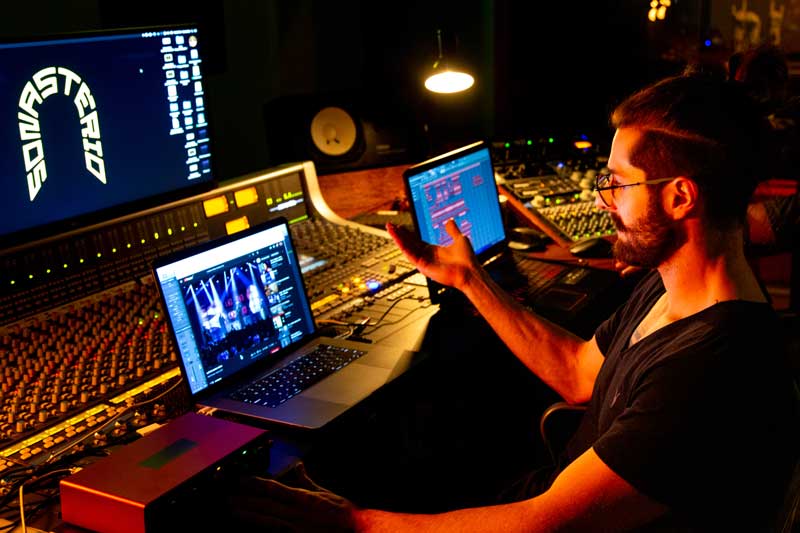
2 – Native Sound Collection
The Native Sound Collection aims to create a growing catalog of songs from Brazilian Indigenous peoples, recorded in studios and made available on major streaming platforms to increase the visibility of Indigenous musical culture and the strength of Indigenous messages of reconnection with nature, resistance, and struggle.
The first block of releases includes The Future is Ancestral (a co-creation between Alok and Indigenous artists – see above, already released) and seven other albums containing traditional and contemporary music from different ethnic groups (Yawanawa, Huni Kuin, Kariri Xocó, Guarani Kaiowá, Guarani Mbya, Guarani Nhandewa, and Kaingang), all to be released in 2024.
The Native Sound Collection is a contribution from the Alok Institute to the International Decade of Indigenous Languages (2022-2032), in cooperation with UNESCO. The Alok Institute intends to release new albums annually throughout the Decade.
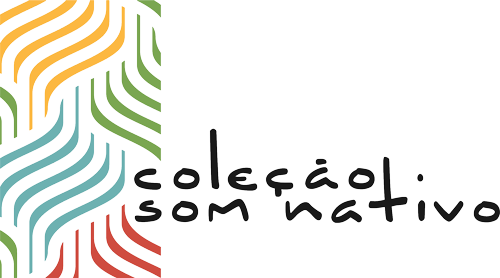
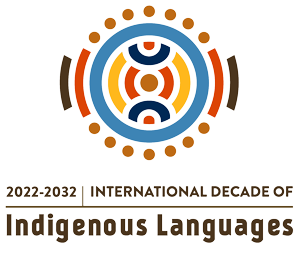
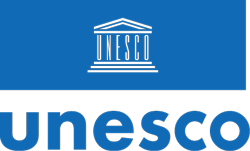
100% of rights belong to the Indigenous artists.
| Album | Artist | Territory | Language |
|---|---|---|---|
| The Future is Ancestral Music Production: Alok Special participation: Célia Xakriabá (povo Xakriabá – MG) | Mapu Huni Kuin | Centro Huwã Karu Yuxibu | Hãtxa Kuî |
| Grupo Yawanawa Saiti Kaya | Terra Indígena do Rio Gregório | Nuke Tsãy | |
| Wyanã Uia-Thê (1970-2022) e grupo Cantos Nativo | Terra Indígena Kariri Xocó | Dzubukuá (Tronco linguístico Macro-Jê) | |
| Òwerá | Terra Indígena Tenondé Porã | Guarani Mbya | |
| Povo Kaingang (movimento Levante pela Terra) | Território Sagrado Floresta Estadual Metropolitana de Piraquara (PR) | Kaingang | |
| Guarani Nhandewa (movimento Levante pela Terra) | Terras indígenas Laranjinha, Pinhalzinho e Ywy Porã – Posto Velho (PR) | Guarani Nhandewa (Tronco linguístico Tupi) | |
| Brô MC’s | Reserva Indígena Francisco Horta Barbosa – aldeias: Jaguapiru e Bororó (MS) | Guarani Kaiowá | |
| Hiri Shubu Keneya Bari Bay | Mapu Huni Kuin | Centro Huwã Karu Yuxibu Rio Branco (AC) | Hãtxa Kuî |
| Saiti Kayahu Mariri Yawanawa Saite Kayuahu | Grupo Yawanawa Saiti Kaya, Povo Yawanawa | Terra Indígena do Rio Gregório Tarauacá (AC) | Nuke Tsãy |
| Cantos dos Encantos Kariri Xocó | Wyanã Uia-Thê (1970-2022) e grupo Cantos Nativo Povo Kariri Xocó | Terra Indígena Kariri Xocó Porto Real do Colégio (AL) | Dzubukuá (Tronco linguístico Macro-Jê) |
| Nhe’e Porã | Òwerá | Terra Indígena Tenondé Porã | Guarani Mbya |
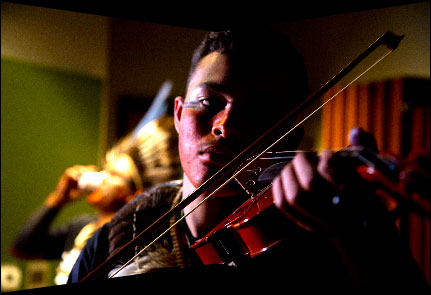
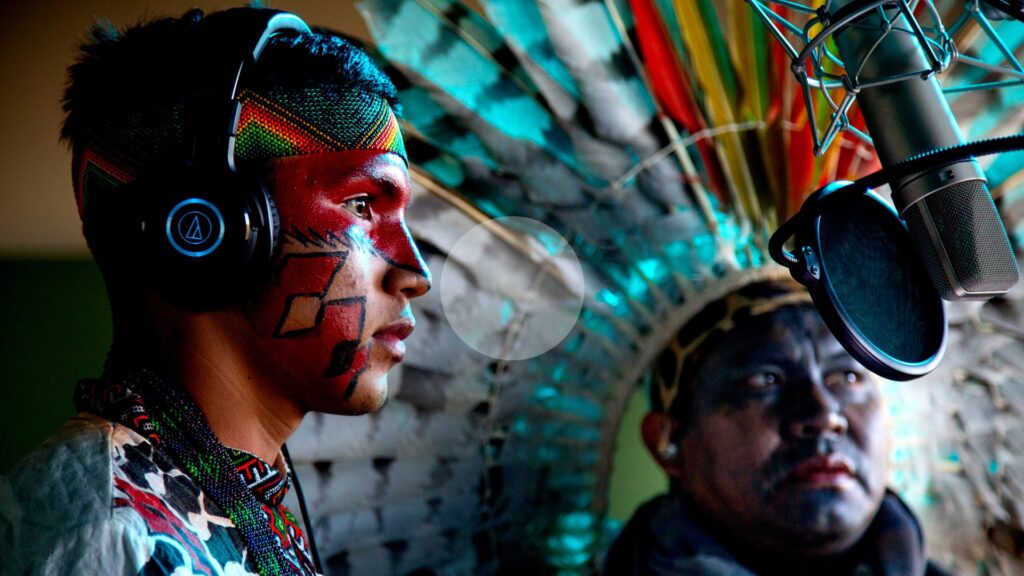
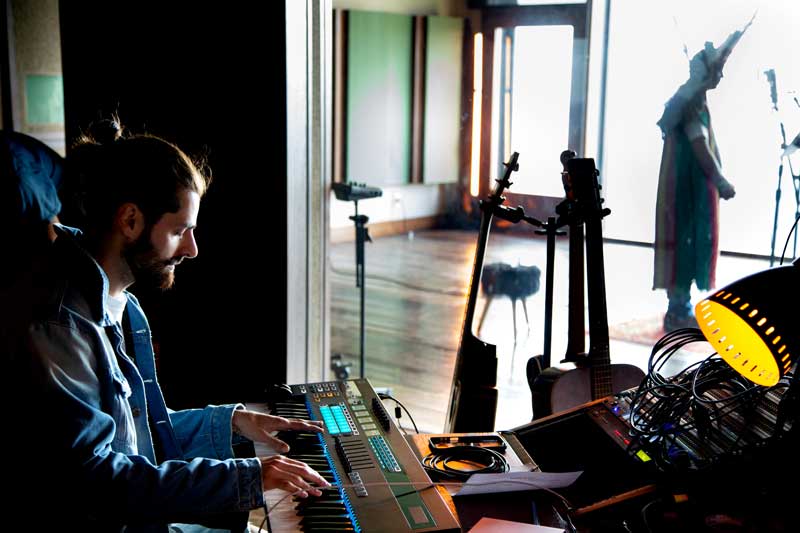
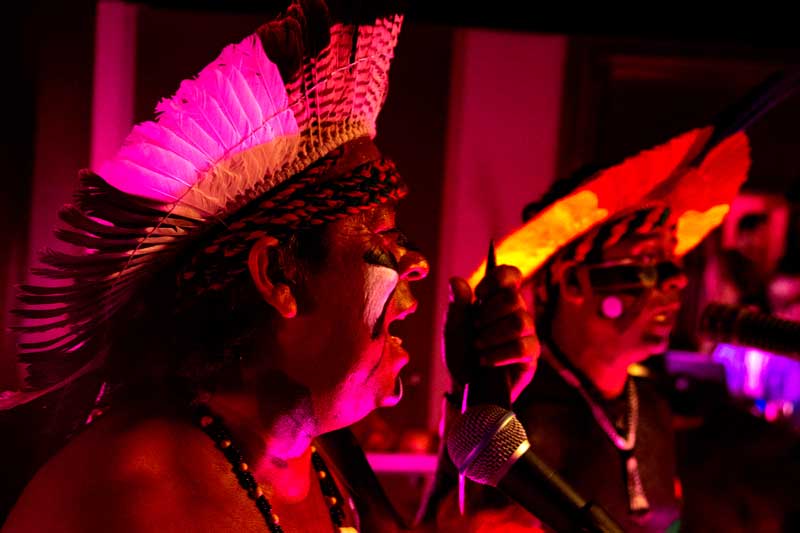
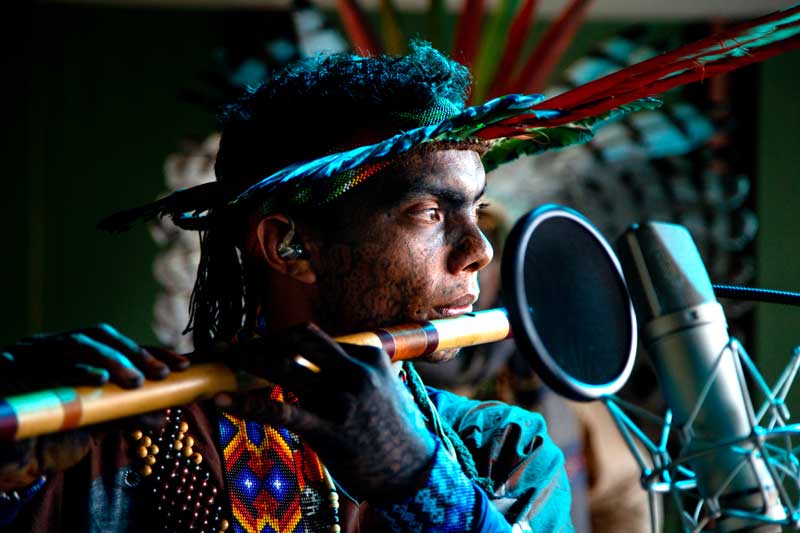
3 – Documentary The Future is Ancestral
A documentary capturing the musical creation processes between Alok and the indigenous groups involved in the recording of “The Future is Ancestral” and other albums that make up the Native Sound Collection, produced by Maria Farinha Filmes to expand the audience’s awareness of indigenous peoples’ worldview of art-spirituality-healing. The documentary is in the final stages with an expected release in the second half of 2024, written by anthropologist Célia Xakriabá and Moara Passoni.
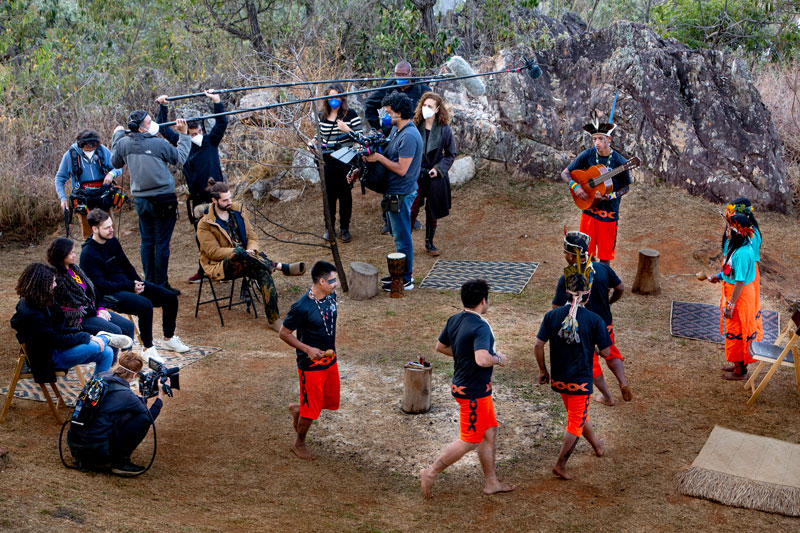
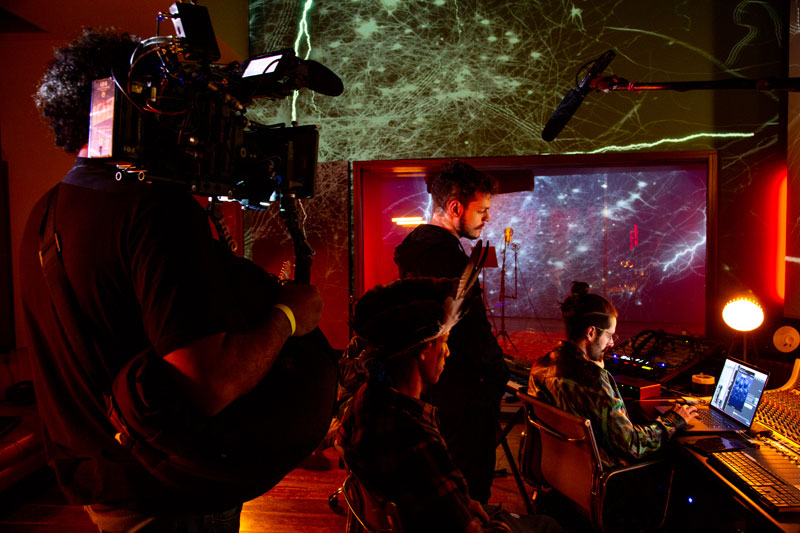
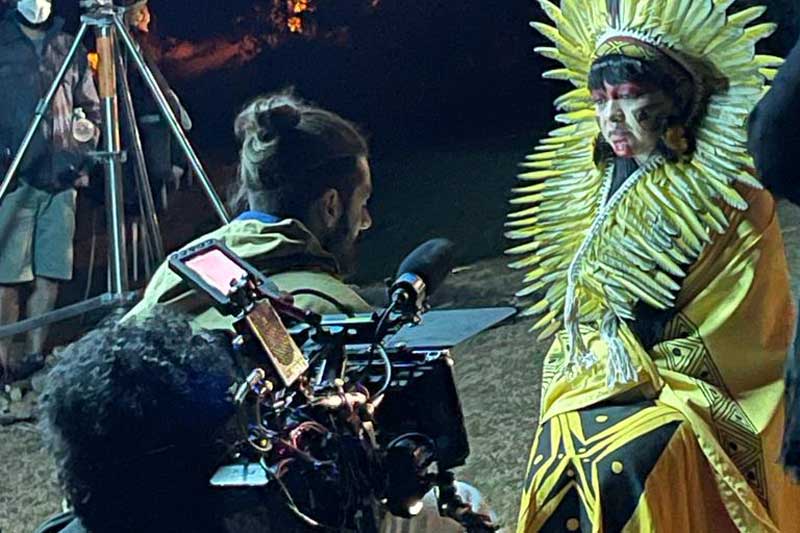
4 – Voices and Rights
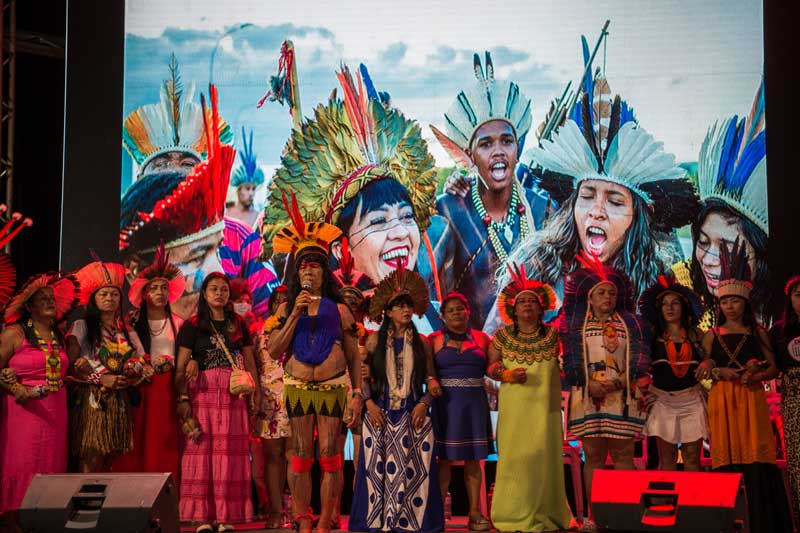
Support for ANMIGA – National Articulation of Indigenous Women Warriors of Ancestry in continuous strengthening actions, legal assistance, and development of legal and communication strategies for the positioning of indigenous women regarding local, national, and/or global demands. (BR)
5 – Motci (1st Tibira Itinerant Cinema Exhibit)
Supporting the exhibit that highlight the importance of indigenous peoples for the preservation and maintenance of the environment. (RJ)
6 – Indigenous Presence in Universities
Support for the IX and X ENEI – National Meeting of Indigenous Students, an event that has become a reference for collective reflection and mobilization in the context of Higher Education and Intercultural Education. (2022 – SP / 2023 – PB)
7 – Festival Brazil is Indigenous Land
Partnership in the festival held in Brasília (2023) for intercultural dialogue to value, and preserve indigenous culture and also create fundamental partnerships between them. (DF)
8 – V FIFEP (International Ethnographic Film Festival of Pará – 2023)
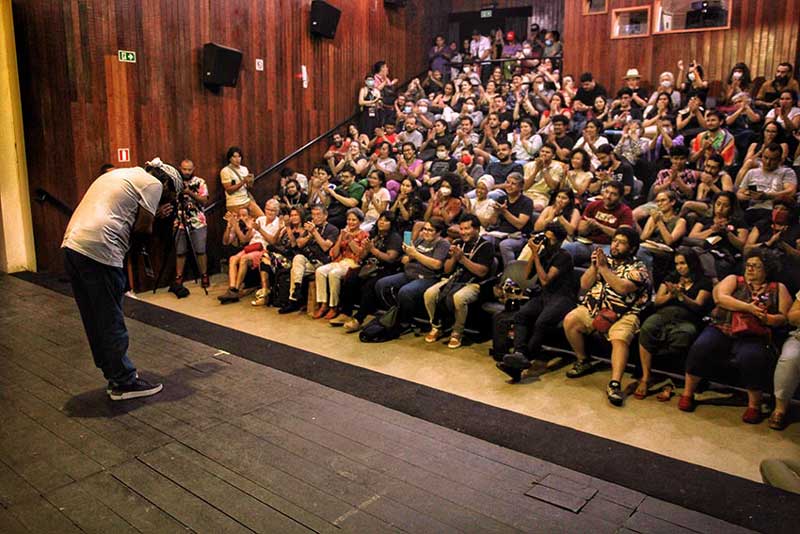
Support for the festival that exhibits and awards national and international film productions addressing contemporary socio-cultural issues about people, the environment, environmental preservation, and social groups. (PA)
9 – 1st Indigenous Cinema and Culture Festival
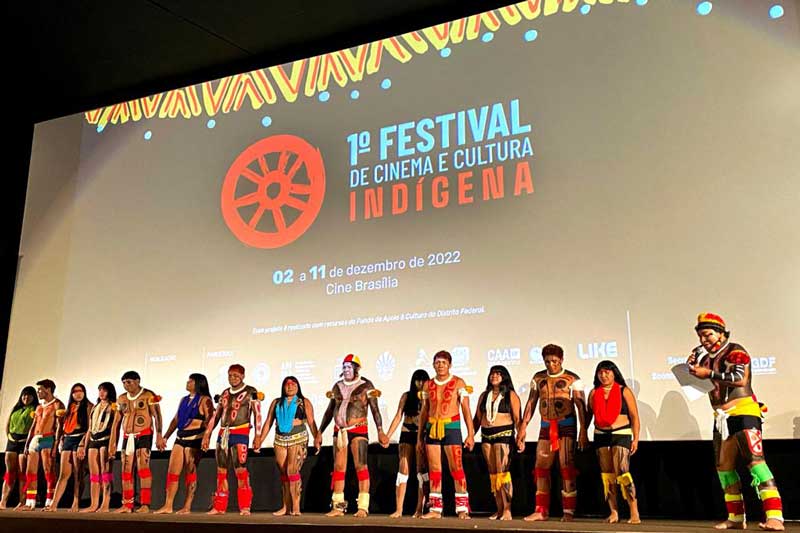
Support for the festival held in Brasília in 2022, including the creation of the Ancestral Lens Award for the categories of Best Direction, Best Photography, and Best Screenplay. (DF)
10 – Indigenous Communication
Support for the Indigenous Media collective at the 19th Free Land Camp (ATL – 2023 edition) to create a space focused on communication activities for youth groups from different Indigenous ethnicities. (DF)
11 – Culture and Spirit
Support for workshops on fabric painting, canvases, and murals, as well as basketry in vines, to value the connection of new generations from various Yawanawa villages with their traditional art and culture. (AC)
12 – Food Security
Support for the Mutum village (Yawanawa) in coordinating the donation of a tractor, implements, and technical consultancy to optimize land use for food cultivation. Partnership with Grupo Rezek and Primavera Máquinas. (AC)
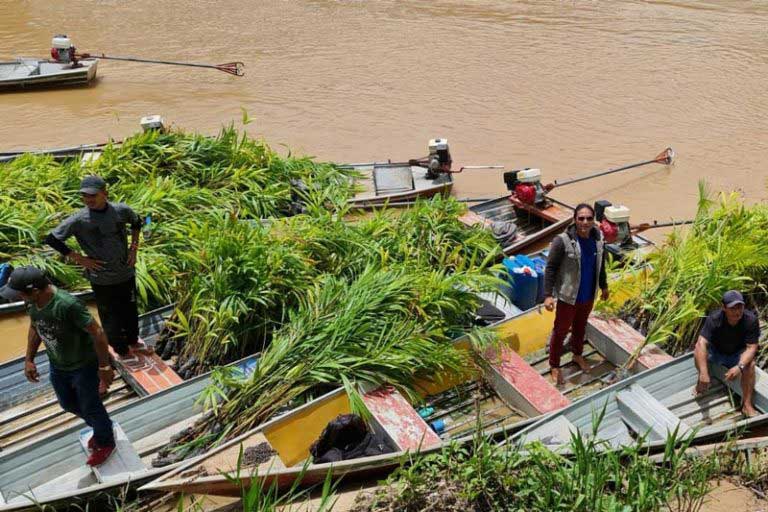
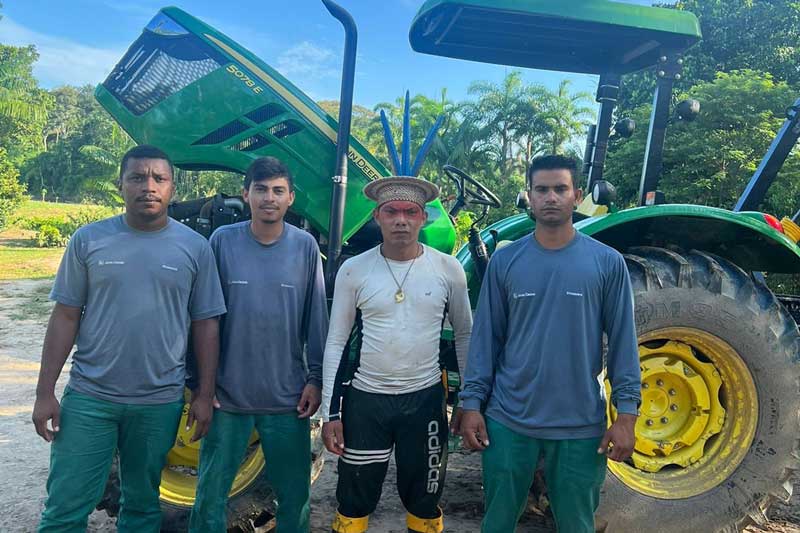
13 – Entrepreneurship
Construction of 10 small houses in the Mutum village (Yawanawa) to improve accommodation for participants in cultural festivals and sacred rituals. (AC)
14 – Ayvú Records Studio
Support for the construction of AYVÚ Records studio – a music studio within an indigenous village in Brazil. The purpose is to provide Brô MC’s group (Guarani Kaiowá) with the possibility to create and produce their music. (MS)
15 – Ravê Kosmophonic Studio
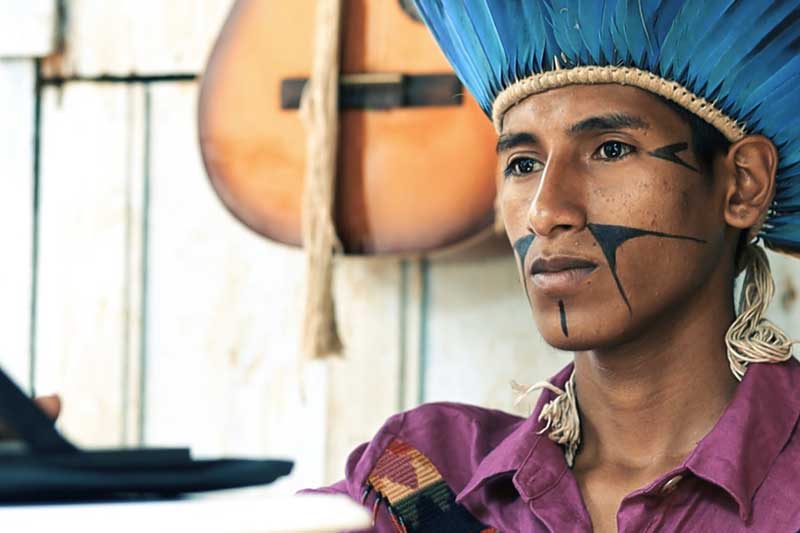
Support for equipment acquisition for Owerá’s mobile audiovisual production studio (Guarani Mbya), a prominent figure in native rap and a member of the Krukutu indigenous community. (SP)
16 – Education
Support for editing “O Choro da Mãe Terra” (The Cry of Mother Earth) book by indigenous writer Olívio Jekupe, dedicated to assisting elementary and high school teachers so they can provide students with a reinterpretation of indigenous peoples’ history. (BR)
17 – Food Security
Construction and equipment acquisition for Campo da Fartura restaurant (at the Huwâ Karu Yushibu Center), aiming to preserve and disseminate Huni Kuî culinary culture, as well as providing food to indigenous people outside the villages in the Rio Branco region. Partnership with GasLive Brasil and Cavgna Group. (AC)
18 – Food Security
Dispatch of 3 tons of seeds for agricultural replanting in 18 Huni Kuî villages affected by floods in 2021. (AC)
19 – Healing and Enchanting Chants
Construction of the Wyanã Native Chants Kariri Xocó space, directed by the family of Chief Wyanã Uia-Thê (1970-2022), which works with traditional medicines for self-awareness and ceremonies. (AL)
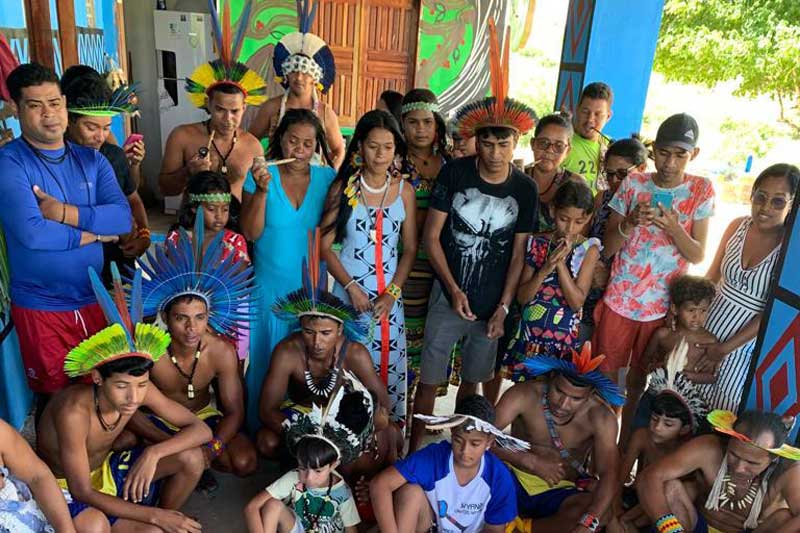
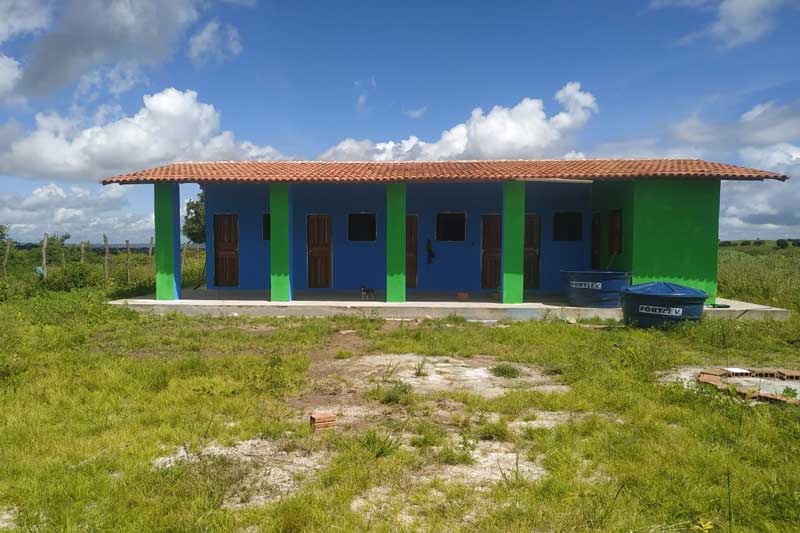
20 – Urban Encounters
Partnership with the Cantos Nativos group to conduct ritualistic practices in their own space and cultural presentations in schools in São Paulo, creating opportunities for the non-indigenous population to deepen their knowledge and experiences with Kariri Xocó indigenous culture. (SP)
21 – Environment and Food Security
Support for the Zág Institute (Xokleng ethnicity) to create and plant 25,000 Araucaria seedlings, one of the main sources of food and medicine for the Xokleng people in the Figueira Village. The support also includes hosting the traditional harvest festival. Partnership with the Equatorial Prize – UNDP (SC).
22 – Climate Guardians
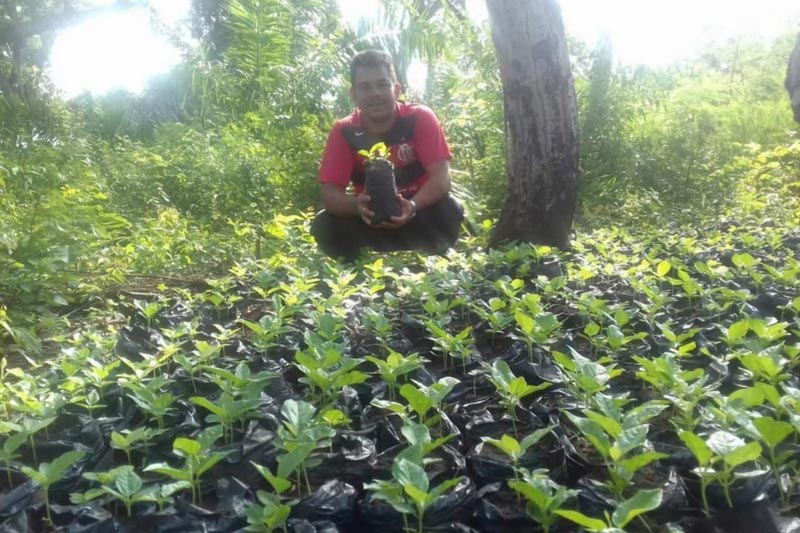
We partnered with the Indigenous Environmental Collective for Action on Nature, Agroecology, and Sustainability – CAIANAS, from the Terena people in Mato Grosso do Sul. The objective is to develop the “Climate Guardians” project, which trains 20 young Indigenous people in Ethnoagroecology in a context of climate emergency. (MS). Partnership with the Equatorial Prize – UNDP
23 – Union of Indigenous Peoples of the Javari Valley
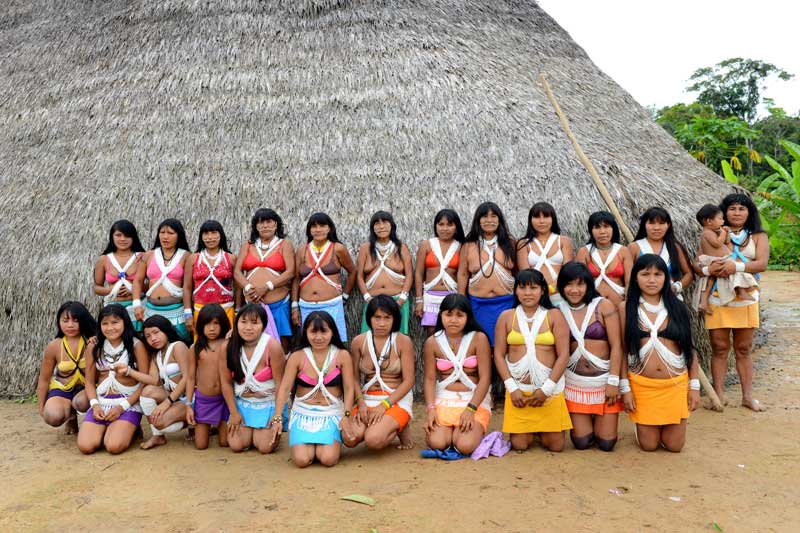
Support for UNIVAJA – Union of Indigenous Peoples of the Javari Valley to develop the “Governance and Ethno-environmental Protection” project, aiming to hold a leadership meeting in the Rio Branco village of the Matis People, where actions to reassess UNIVAJA’s governance model will take place. (AM) Partnership with the Equatorial Prize – UNDP
24 – Culture as Resistance
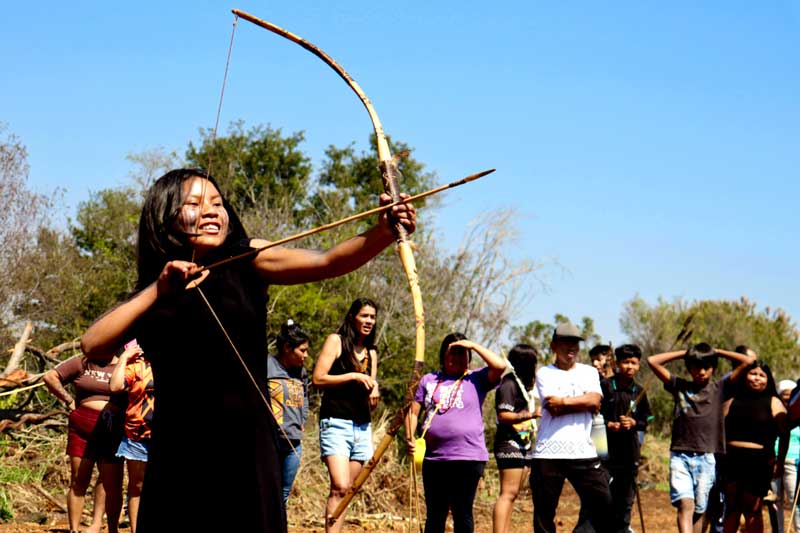
The Alok Institute is contributing to a cultural strengthening and revitalization of customs, habits, beliefs, artistic expressions, and preservation of the language of the Guarani Nhandewa indigenous people who live in the Laranjinha Indigenous Territory (Northern Paraná, Southern Brazil), by supporting cultural events that unite – through three cultural events – the village elders and leaders with children, youth, and adults, encouraging the revitalization of traditions and worldviews for the future generations’ way of life.

